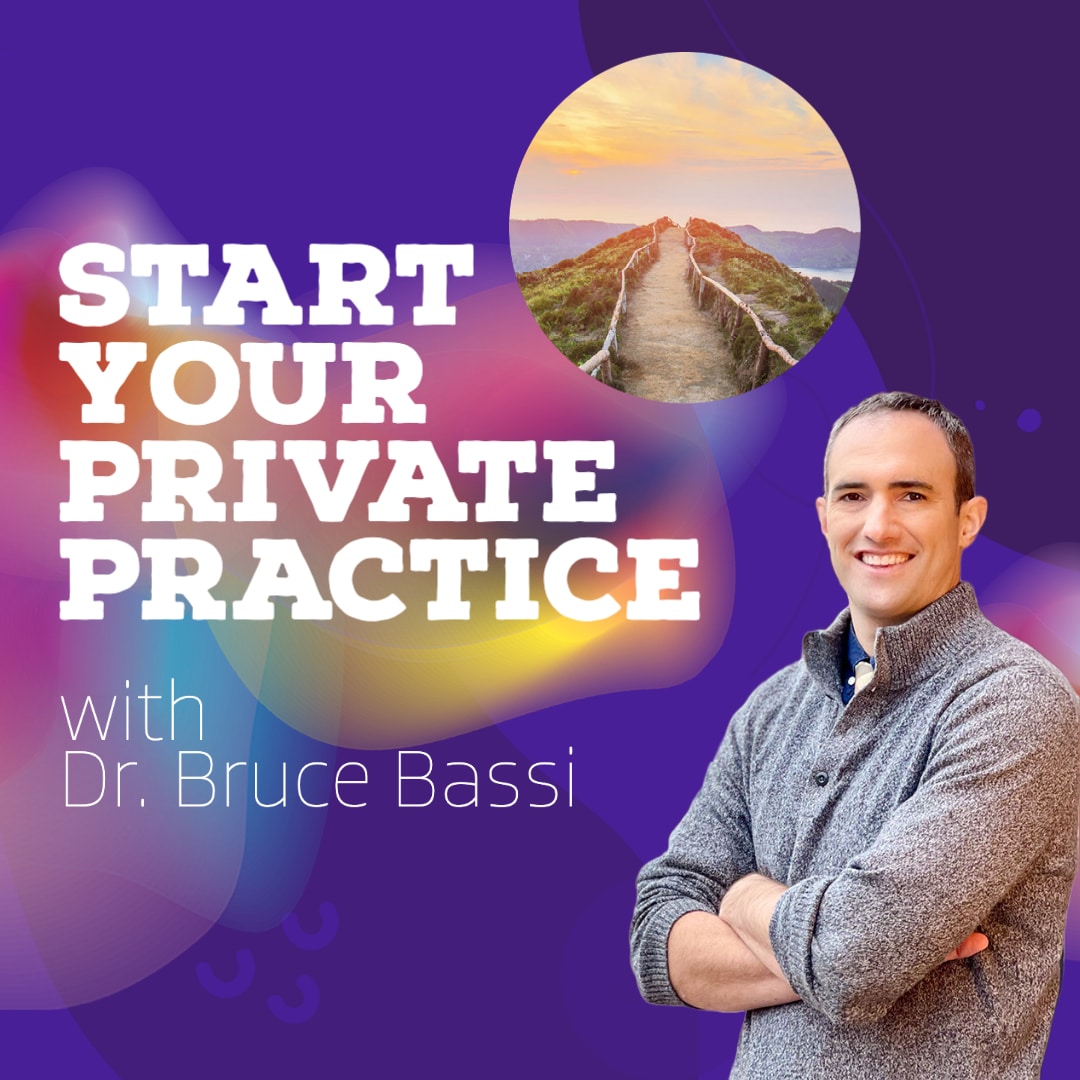Marketing a private practice can be daunting, especially for mental health professionals who may not have formal training in business and marketing. However, attracting new clients and growing your practice is possible with the right strategy and approach. This article will discuss some effective marketing strategies for private practice therapists and counselors.
However, if you are just starting your private practice, then here is a guide on how you can effectively manage your practice; check it first.
KEY TAKEAWAYS
-
Establish an online presence to reach a wider audience.
-
List your practice on directories and optimize for SEO.
-
Collaborate with other professionals and organizations.
-
Leverage positive online reviews and testimonials.
-
With these strategies, you can attract new clients and build a successful practice.

5 Best Ways to Market Your Private Practice and Attract New Clients
Are you a mental health professional struggling to attract new clients to your private practice? With so many options out there, it can be challenging to know where to start when it comes to marketing your services. However, some tried-and-true strategies can help you stand out and attract new clients to your practice.
This article will explore the five best ways to market your private practice and attract new clients. Whether you are just starting out or looking to expand your client base, these tips will help you establish a strong online presence, build relationships with other professionals, and leverage the power of positive feedback from your clients.
1. Establish Your Online Presence

In today’s digital age, having a strong online presence is essential for any business, including private practices. One of the first steps to establishing your online presence is to create a professional website that showcases your services, qualifications, and experience. Your website should be user-friendly and easy to navigate, with clear calls to action for more clients to contact you. This is a must-have marketing strategy.
In addition to a website, social media can be a powerful tool for marketing your practice. Consider creating a professional Facebook page or LinkedIn profile where you can share updates about your practice, share helpful resources, and connect with potential clients.
Here are some additional points to consider when establishing your online presence:
Choose the right platform: There are many website builders available, including WordPress, Wix, Squarespace, and others. Consider each platform’s features, cost, and ease of use when making your choice.
Develop a professional website: Your website should be easy to navigate, visually appealing, and contain all the necessary information that potential clients may need, including your services, qualifications, fees, and contact information. Ensure your website is optimized for mobile devices to accommodate users who browse on their smartphones and tablets.
Optimize your website for search engines: As discussed earlier, optimizing your website for search engines can help improve your visibility and attract more traffic. This involves using relevant keywords and phrases throughout your website, including in your content, metadata, and alt tags for images.
Create engaging and informative content: Your website should feature engaging and informative helpful content that appeals to potential clients. This can include blog posts, videos, and podcasts that address common questions, concerns, or topics related to your services.
Leverage social media: Creating social media profiles for your private practice marketing can help you connect with ideal clients and establish your brand. You can share updates, blog posts, and other relevant content on your social media profiles to attract followers and generate engagement.
2. Use Search Engine Optimization (SEO) Techniques

Search engine optimization (SEO) is the practice of optimizing your website to rank higher in search engine results pages (SERPs). Using relevant keywords and phrases in your website content, metadata, and other elements can improve your website’s visibility and attract more traffic.
To improve your website’s SEO, consider hiring a professional SEO consultant or using online tools to conduct keyword research and analyze your website’s performance. Additionally, ensure that your website is mobile-friendly and optimized for speed to provide a positive user experience for potential clients.
SEO is a key part of digital marketing; by applying SEO methods, you can appear higher on Google search results, so to attract clients through digital marketing, SEO is a must-have strategy. Besides SEO, you can also create your business profile on google maps for your own practice, the same as local businesses.
3. Leverage Online Reviews and Testimonials

Online reviews and testimonials can be powerful tools for attracting new clients. Positive reviews and testimonials from satisfied clients can help establish trust and credibility with potential clients and increase your visibility in local search results.
Encourage your clients to leave reviews on your website, social media profiles, and relevant online directories like Yelp and Google My Business. Respond promptly and professionally to negative reviews to show that you value client feedback and are committed to providing excellent service.
Here are some additional points to consider when leveraging online reviews and testimonials:
Encourage clients to leave reviews: Encourage current and past clients to leave reviews on various online platforms by including links to your profiles in your email signature or on your website. You may also consider following up with clients after their sessions to request feedback and ask if they would be willing to leave a review.
Respond to reviews: Responding to online reviews shows that you are engaged and value your clients’ feedback for your private practice. Responding to positive and negative reviews professionally and respectfully can help you build trust and credibility with potential clients.
Showcase positive reviews on your website: You can showcase positive reviews on your website by creating a dedicated page or including them on your homepage. This helps potential clients see the positive experiences of others and can help build trust and confidence in your private practice. This is, again, a great marketing strategy.
Share reviews on social media: Share positive reviews on your social media profiles to amplify their reach and engage with your audience. This can help you generate more buzz and attract new clients to your private practice. Remember, social media marketing is a great strategy to get potential customers.
Use testimonials in your marketing materials: Incorporate testimonials into your private practice marketing materials, such as brochures or flyers. This can help potential clients see the value and benefits of your services and increase their likelihood of booking an appointment. Following their testimonials, you’ll get more ideal client.
4. Collaborate with Other Professionals and Organizations

Networking and collaboration with other professionals and organizations can also help you attract new clients to your private practice. Consider reaching out to local mental health organizations, community groups, and other professionals like physicians, social workers, and school counselors to establish mutually beneficial partnerships.
Collaborating with other professionals can help you reach a wider audience, provide valuable resources and support to your clients, and establish yourself as a trusted expert.
Some key points to remember for this marketing strategy:
Identify potential collaborators: Start by identifying professionals and organizations that work in complementary areas to your practice. Consider reaching out to local mental health organizations, community groups, and other professionals like physicians, social workers, and school counselors.
Establish mutual goals and benefits: When reaching out to potential collaborators, establish clear goals and benefits you can offer each other. For example, you might collaborate with a local school to provide counseling services to students or with a physician to provide mental health services to their patients.
Develop mutually beneficial partnerships: Develop mutually beneficial partnerships that support each other’s goals and needs. This might include co-hosting events, sharing marketing materials, and referring clients to each other’s practices.
Attend networking events: Attend networking events and conferences to meet other mental health professionals and community organizations. This can help you establish valuable relationships and collaborations that can benefit your practice in the long term.
Offer your expertise: Consider offering your expertise to other professionals and organizations, such as training or consultation services. This can help establish you as an expert in your field and build trust and credibility with the ideal client.
5. Provide Valuable Content and Resources

Finally, providing valuable content and resources on your website as blog post and social media channels can help attract potential clients and establish your expertise in your field. Consider creating blog posts, videos, or other content that addresses common questions or concerns that more clients may have.
Resources like self-help guides, worksheets, and other tools can also help establish your practice as a helpful and valuable resource for clients. You can attract potential clients and establish trust and credibility with your audience by providing valuable content and resources.
Read out the guide if you want to know more about how to create a successful business plan.
Summary
In conclusion, marketing your private practice can be challenging, but with the right approach, attracting new clients and growing your practice is possible. By establishing a strong online presence, leveraging SEO techniques, leveraging online reviews and testimonials, collaborating with other professionals and organizations, and providing valuable content and resources, you can establish yourself as a trusted expert in your field and attract new clients to your practice. So you should apply all these strategies to get more clients.
FAQs
How important is it to establish an online presence for my private practice?
Establishing an online presence is crucial for any private practice. A website and social media profiles can help you reach a wider audience and provide valuable information about your services and qualifications. An online presence allows potential clients to find you easily and learn more about your private practice.
What are some effective strategies for optimizing my website for search engines for private practice?
Some effective strategies for optimizing your website for search engines to get more traffic for your private practice include using targeted keywords, optimizing your website for mobile devices, and ensuring fast load times. You can also improve your website’s search engine ranking by regularly posting fresh content and obtaining backlinks from reputable websites.
How can I leverage online reviews and testimonials to attract new clients to my private practice?
Collecting positive feedback from current and past clients and sharing it on various online platforms can help establish credibility and build trust with potential clients. Encourage your clients to leave reviews and testimonials on your website, social media profiles, and online directories such as Psychology Today.
What are some effective ways to collaborate with other mental health professionals and community organizations to expand my reach?
Networking with other mental health professionals and community organizations can help you expand your reach and provide valuable resources and support to your clients. Consider attending conferences, joining professional organizations, and volunteering in your community to build relationships and establish partnerships.
How can I effectively use social media to market my private practice and engage with potential clients?
To effectively use social media to market your private practice, it’s important to identify your target audience and tailor your content to their needs and interests. Use a mix of informative and engaging content, such as blog posts, videos, and infographics, to establish your expertise and provide value to your audience. Engage with your followers by responding to comments and messages and participating in relevant online discussions.
What are some common mistakes to avoid when marketing a private practice, and how can I ensure my efforts are effective?
Some common mistakes to avoid when marketing a private practice include not identifying your target audience, focusing too much on self-promotion, and not measuring the effectiveness of your marketing efforts. To ensure that your efforts are effective, tracking your website traffic, engagement on social media, and client referrals is important. This can help you identify which strategies are working and adjust your marketing plan accordingly.
Also, you need to take care of your own mental health, so here is a guide on How to Delegate Tasks and Avoid Burnout.

 Bruce Bassi
Bruce Bassi





